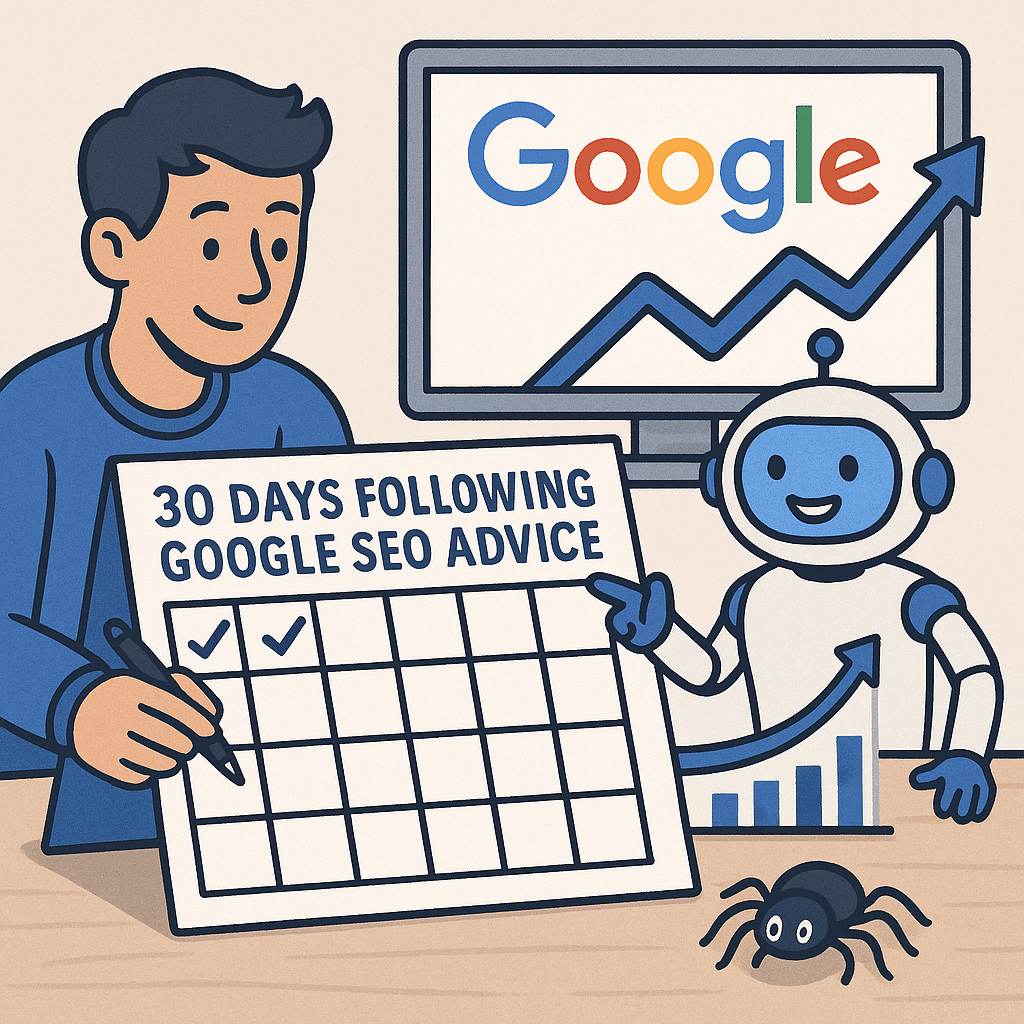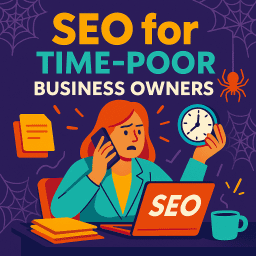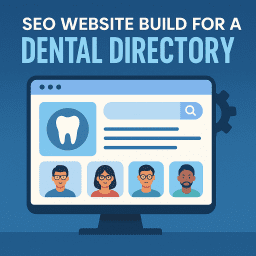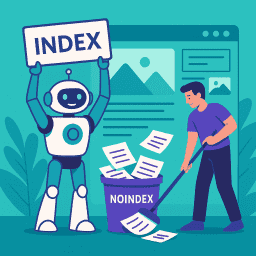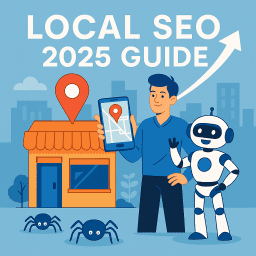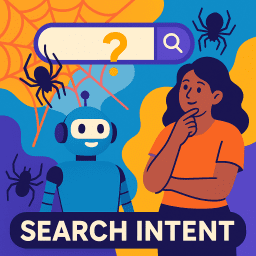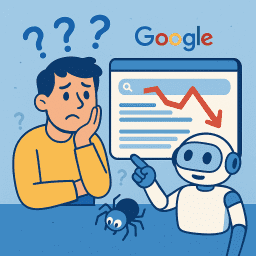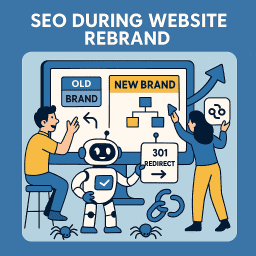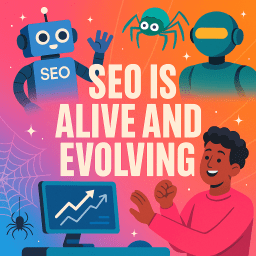I Followed Google’s SEO Advice for 30 Days – Results
What really happens when you play by the rules?
🎯 No Shortcuts, Just SEO the Google Way
Everyone claims to know the secret to ranking high on Google. But what happens when you ditch the tricks, ignore the gurus, and follow only what Google says you should do?
For 30 days, I decided to find out. No shortcuts, no grey-hat tactics. Just good old-fashioned compliance with Google’s own SEO guidelines.
Here’s how it went – the wins, the headaches, and the surprising lessons that changed how I view SEO forever.
📋 The Rules: What Google Actually Recommends
Before the experiment began, I spent a few hours combing through Google’s SEO Starter Guide and official Search Central blog.
Here’s a summary of the core advice:
- 🔍 Create helpful, reliable, people-first content
- 📱 Ensure your site is mobile-friendly
- 💨 Improve page loading speed
- 🔗 Build natural, relevant backlinks
- 🔧 Fix crawl errors and broken links
- 📊 Use proper title tags, meta descriptions, alt text and schema
- 🌐 Submit your sitemap and keep internal linking logical
🛠 Week 1: The Technical Spring Clean
The first week was all about the foundations. I ran my site through:
- 🧪 Google Search Console (to find crawl errors)
- 🧼 PageSpeed Insights (to fix load time issues)
- 🔍 Mobile-Friendly Test (to ensure responsive design)
Fixes included:
- ✅ Compressing oversized images
- ✅ Removing render-blocking JavaScript
- ✅ Fixing 404 errors and updating old internal links
Not glamorous. But crucial.
✍️ Week 2: Content Overhaul (Bye Bye, Fluff)
Next, I reviewed the 15 most visited pages on the site. If they weren’t helpful or answering search intent, they were either rewritten or deleted.
I focused on:
- 🎯 Matching keywords with genuine user questions
- 🔍 Using descriptive titles and meta descriptions
- 📝 Writing content that was informative, not salesy
- 📚 Adding examples, FAQs, and sources to boost credibility
Did it feel like a content detox? Absolutely.
🔗 Week 3: The Link Building (the Google Way)
No outreach, no buying links, no guest posts on dodgy blogs.
Instead, I shared useful posts on Reddit, and answered relevant Quora threads.
The results?
- 📈 A few natural backlinks from medium-authority blogs
- 💬 Increased engagement from users finding the content genuinely helpful
Link building the honest way is slow. But it’s also more sustainable and risk-free.
📅 Week 4: Monitor, Tweak, Repeat
Now that the major updates were complete, I spent the last week monitoring performance in Google Search Console and Analytics.
I tracked:
- 📉 Drop in bounce rates (by 12%)
- 📈 Improved click-through rates on updated pages
- 🔝 Several low-ranking pages that climbed onto page 1
It wasn’t viral growth, but it was a steady and measurable improvement. And it felt… clean.
🤔 What Surprised Me Most
- 🧠 Google really does reward clarity – vague, keyword-stuffed fluff went nowhere.
- 🚫 Fixing broken links helped more than expected – almost overnight impact on crawl efficiency.
- 🏗️ Internal linking is underrated – when I made it easier to navigate between related pages, session durations jumped.
📉 What Didn’t Work (or Took Too Long)
- 🐢 Natural backlinks take forever
- 📦 Schema markup didn’t make an obvious difference (yet)
- 🔍 Some “people-first” content still got outranked by AI-generated junk
🏁 The Results: Did It Actually Help?
Here’s what happened to the site after 30 days:
- 📊 Organic traffic ↑ 21%
- 📈 Average ranking position ↑ from 24.1 to 17.8
- ⏱️ Avg. session duration ↑ from 1:41 to 2:28
- 📉 Bounce rate ↓ 12%
These aren’t viral stats. But they are sustainable ones.
And most importantly, I avoided penalties, kept user experience front and centre, and slept well at night.
🧠 Final Thoughts: Should You Follow Google’s SEO Advice?
If you’re chasing fast wins, probably not. But if you want a long-term strategy that avoids penalties and builds real value – Google’s SEO guidance is a solid foundation.
It’s not sexy. But it works.
And for businesses who want to build trust, rank ethically, and stay visible for years – playing by the rules just might be the smartest strategy of all.
🔗 Related Resources from The SEO Guide Book
- If you’re completely new to search engine optimisation, our SEO Basics guide is a great place to start.
- Fixing issues like missing title tags or slow site speed? Check out our On-Page SEO guide for a full breakdown.
- Technical issues can silently hold your site back — our Technical SEO page covers the essentials.
- Not ready to hire an expert? Our DIY SEO guide will walk you through the steps.
- Want to make sure you’ve covered the basics? Download our Free SEO Checklist and follow along.
📝 Recap and Clarify: Post-Specific FAQs
What is Google’s official SEO advice?
Google’s official SEO advice focuses on creating helpful, people-first content, improving site speed, mobile usability, structured data, and avoiding manipulative tactics.
Did following Google’s advice improve rankings?
The experiment showed small improvements in performance, but ranking gains were modest. Google’s guidance is valuable but rarely produces overnight success.
How long does it take to see SEO results?
SEO improvements often take 3 to 6 months or longer to show meaningful results, especially when starting from scratch or in competitive niches.
Is Google’s SEO advice enough to rank well?
Google’s advice offers a great foundation, but in competitive markets, additional strategy—such as link building and content marketing—is often required.
What kind of content does Google recommend?
Google recommends original, helpful, experience-based content written for people—not algorithms. Content should clearly demonstrate E-E-A-T principles.
Should I ignore what Google says and just chase rankings?
No. Short-term tactics may work briefly, but they can lead to penalties. Google’s advice ensures long-term sustainability and avoids future algorithm risks.
Does helpful content really make a difference?
Yes. Helpful, intent-matching content improves engagement and signals relevance to Google, both of which contribute to better search performance over time.
Is technical SEO part of Google’s recommendations?
Absolutely. Google encourages fast-loading pages, mobile-friendliness, secure HTTPS connections, structured data, and clean internal linking structures.
What’s the biggest lesson from this 30-day test?
That SEO is a long-term commitment. Following Google’s advice is a smart move, but consistent effort and broader strategy are still required to compete.
Where can I find Google’s official SEO guidelines?
You can find Google’s guidance in the Search Essentials documentation at developers.google.com and through their official Search Central blog.


